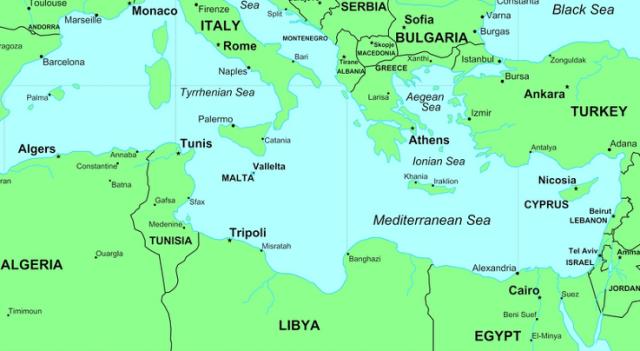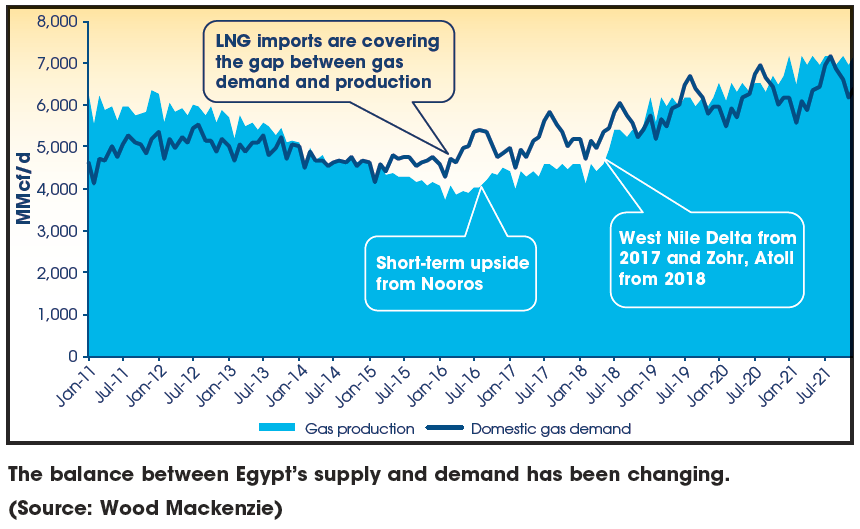
This year is set to be pivotal for the Eastern Mediterranean upstream sector, with players expected to position themselves on an ever-evolving chessboard of markets, exploration activity and pricing.
In many ways, 2016 laid the groundwork for the activity Wood Mackenzie expects to see this year. Israel implemented a regulatory framework that will speed the way toward final investment decision (FID) for the Leviathan development; progress on the super giant Zohr Field continued at breakneck speed following FID in February 2016; and Cyprus launched its third licensing round, garnering interest aplenty.
However, with a heady mix of geopolitics, regulatory and gas pricing issues, commercialization of natural gas in the Eastern Mediterranean is far from straightforward. Major projects such as Leviathan’s Phase 2 (Israel) and Aphrodite (Cyprus) are dependent on export routes for their gas to make the projects economically viable—making 2017 even more interesting.
Finding markets
Egypt has witnessed severe swings in its gas market over the last decade. Until very recently, it was seen as the premier destination of discovered gas in the Eastern Mediterranean, swinging from the world’s eighth largest LNG exporter in 2009 to the world’s eighth largest LNG importer in 2016. And things are set to change again.
New indigenous gas production will give the country breathing space to ramp down costlier LNG imports and alleviate ongoing gas shortfalls. The space that existed in the Egyptian domestic market is rapidly disappearing, and any new discoveries could see more gas diverted to Egypt’s idle LNG plants. Original letters of intent (LOIs) that were signed back in 2014 allowing Israeli gas access to idle Egyptian LNG infrastructure could be squeezed out as Egyptian projects move ahead under pragmatic revisions of gas pricing.
Wood Mackenzie’s latest analysis shows that Egypt could be self-sufficient in gas by 2019. Analysts are planning a multiclient study into this dynamic market for clients in need of a deeper dive into the Egyptian gas market.
Israel and Cyprus have gas markets that are too small to absorb all of the reserves from Leviathan (622 Bcm or 22 Tcf) and Aphrodite (127 Bcm or 4.5 Tcf). To fully realize value in the Leviathan project, large-volume gas sales agreements will need to be signed. Egypt’s reversal of fortunes means the large-volume LOIs with Leviathan now look less likely to translate into full gas sales agreements, but smaller volume offtake contracts might still be possible.
In addition, Turkey and Europe remain possible markets for Israeli and Cypriot gas. However, significant challenges remain to realize either market as a viable offtaker of gas from the Eastern Mediterranean. In Turkey’s case, the main stumbling block is Cypriot unification, while a high-cost pipeline through a seismically active seabed is a challenge to carving out space in the European market.
Exploring for the future
Exploration activity was hardly on a high in the Eastern Mediterranean during 2016; no exploration wells were drilled in Cypriot or Israeli waters and only two wells drilled offshore Egypt. However, Egypt, Cyprus and Israel all launched licensing rounds, with considerable excitement around the new carbonate reef play proven by the discovery of Zohr (850 Bcm or 30 Tcf).
The proximity of blocks 10 and 11 to Zohr and the identification of “Zohr-like” structures/prospects on these blocks raise the distinct possibility that further large volumes of gas could be discovered.
If more gas materializes offshore Cyprus, Eastern Mediterranean puzzle pieces will rearrange themselves, changing the dynamics again. Upstream players will have to take stock of their position and maneuver accordingly, opening up new possibilities for monetization. For example, onshore Cyprus LNG, which was shelved in 2014, could be revisited.
Israel, meanwhile, will be following what happens in Cyprus with great care. If significant additional volumes of Cypriot gas are found, it would take a favorable position in front of Leviathan or Tamar expansion gas. Shell’s interest in both Egyptian LNG at Idku and Aphrodite in Cyprus has a negative impact on Idku as a destination for Israeli gas, especially if more gas is found (and developed through Aphrodite) and allowing Cypriot gas to realize Idku capacity. The Israeli licensing round that was launched in November 2016 will likely attract limited interest due to demand in Israel for gas and the lack of export solutions.

Complicating possible offtake routes for Israel is the soon-to-be announced Lebanese licensing round. The round has been on hold since its original announcement in 2013 due to a political stalemate in the Lebanese parliament. The recent passing of two key pieces of legislation has allowed the round to move forward. The Lebanese government estimates reserves of 2.7 Tcm (96 Tcf) of gas and 865 MMbbl of oil could be contained within the 45% of acreage covered by interpreted seismic data.
Offshore Lebanon is thought to be prospective and is likely to attract upstream companies that stayed away from Israeli blocks due to their interests in other Middle Eastern/Gulf countries.
However, the Egyptian export options that exist for Israel, Cyprus and possibly Lebanon could be put under pressure if Egyptian exploration success continues. EGPC awarded six blocks in 2016, and EGAS plans a new offshore round for next year. All in all, there is a lot of exploration acreage to go after, and those blocks near Zohr will be closely watched.
On top of this, there is already quite a bit of gas discovered in the Nile Delta waiting to be developed as well as several high-profile onshore wells due to be drilled this year with high pre-drill estimates.
Pragmatic pricing
The final piece on the Eastern Mediterranean chess board is that of price. The willingness and ability to demonstrate pragmatism on pricing will be important for both governments and operators. An example of this can be seen on the Egyptian side, where the government has been quite pragmatic over the last couple of years, contributing to FID on big projects such as West Nile Delta, Noroos, Atholl and Zohr. These projects cumulatively will add an impressive 113 Mcm/d (4 Bcf/d) of production by 2022 and have, in part, been made possible by operators managing to negotiate higher prices with EGAS, of up to $5.88/MMBtu.
On the operator side, Energean Oil & Gas in Israel has identified price as a key lever for access to market. In Israel’s saturated domestic gas market, the much larger Leviathan project is seen to have locked up nearly all of the contestable demand available. However, the Karish and Tanin project (57 Bcm or 2 Tcf), which Energean operates, is attempting to compete with Leviathan by offering a quicker development option (FPSO unit) and a lower price. Price openers in 2019 for existing contracts with Tamar might tempt customers to go with cheaper gas. The fact that Leviathan might not compete in those price openers might give Karish and Tanin the edge in securing that contestable demand.
Recommended Reading
Confirmed: Liberty Energy’s Chris Wright is 17th US Energy Secretary
2025-02-03 - Liberty Energy Founder Chris Wright, who was confirmed with bipartisan support on Feb. 3, aims to accelerate all forms of energy sources out of regulatory gridlock.
Dividends Declared Week of Feb. 17
2025-02-21 - 2024 year-end earnings season is underway. Here is a compilation of dividends declared from select upstream, midstream, downstream and service and supply companies.
Dividends Declared Week of Feb. 24
2025-03-02 - As 2024 year-end earnings wrap up, here is a compilation of dividends declared from select upstream and midstream companies.
Dividends Declared Week of Dec. 16
2024-12-20 - As fourth-quarter 2024 nears its end, here is a compilation of dividends declared from select upstream, midstream and service and supply companies.
Expand Energy Picked to Join S&P 500
2025-03-10 - Gas pureplay Expand Energy will be elevated on March 24 from its position in the S&P MidCap 400 index.
Comments
Add new comment
This conversation is moderated according to Hart Energy community rules. Please read the rules before joining the discussion. If you’re experiencing any technical problems, please contact our customer care team.





